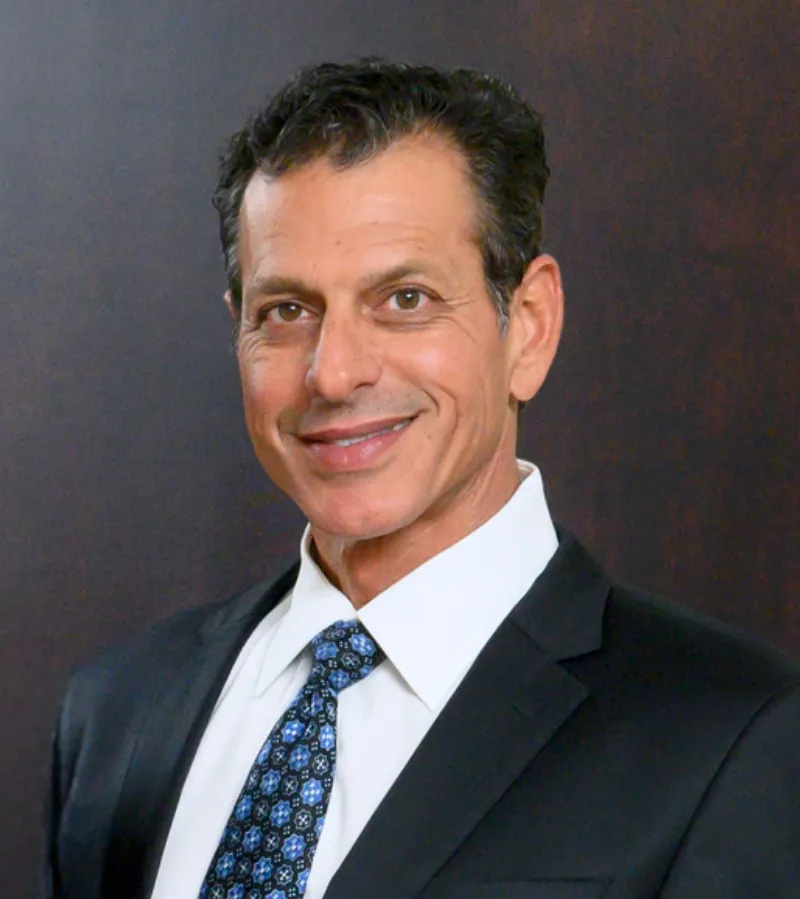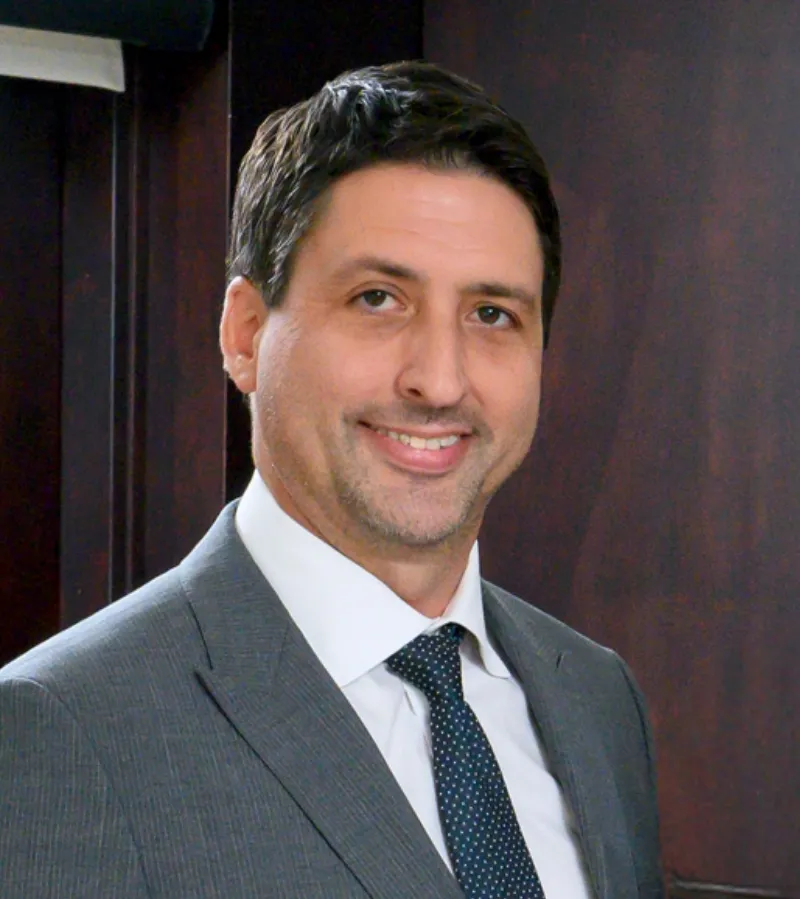Medical mistakes are one of the most devastating forms of negligence, especially when they happen at the hands of the professionals you trust with your health. When a doctor, nurse, hospital, or medical facility in Tampa fails to follow accepted standards of care and you suffer harm as a result, Florida law allows you to pursue a medical malpractice claim.
At Diaco Law, our personal injury attorneys in Tampa take these cases personally. With nearly 30 years of medical malpractice experience, and with Dr. Dan Diaco, one of the few attorneys in the nation who holds both a medical degree and a law degree, actively involved in every case, our firm brings a level of insight and precision that most law practices simply cannot match.
If you or a loved one was injured because of a misdiagnosis, surgical error, medication mistake, anesthesia error, or another form of medical negligence, our Tampa medical malpractice lawyers are prepared to investigate what happened, identify every responsible healthcare provider, and fight for the full compensation you deserve.
Meet Diaco Law Firm’s Tampa Medical Malpractice Lawyers
Joseph F. Diaco, Jr., Esq.
Founder & Attorney
Joseph F. Diaco, Jr. (Florida Bar No. 65201) is committed to helping injury victims in personal injury claims. Mr. Diaco began building a reputation as an aggressive advocate while litigating complex insurance cases early in his legal career, beginning in 1995. For nearly 2 decades, Mr. Diaco has managed thousands of injury claims, deposed hundreds of experts (including doctors), and successfully handled dozens of jury trials.
Daniel S. Diaco, M.D., J.D.
Partner & Attorney
Throughout his career, Dr. Daniel Diaco (Florida Bar No. 127123) has worked as a medical expert evaluating the medical aspects of injury cases. Now, he is able to use his dual degrees in medicine and law and his 25 years of medical experience, education, and training to evaluate both the medical and legal aspects of personal injury and medical malpractice claims. Dr. Diaco has been an aggressive medical advocate for his patients for over two decades.
Scott A. Arthur, Esq.
Partner & Attorney
Scott A. Arthur (Florida Bar No. 15889) joined Diaco Law as a partner in 2020. Previously, Mr. Arthur was a shareholder at Gunn Law Group, P.A., where his practice focused on representing policyholders and the injured in claims against insurance companies, including cases involving disputed insurance coverage and bad faith. Mr. Arthur has jury trial and appellate experience in both state and federal court, and has litigated hundreds of personal injury and insurance cases on behalf of injured victims and Florida policyholders who have been denied fair compensation.
What Are the Leading Causes of Medical Errors in Tampa?
While all care providers are expected to behave professionally, there are many potential reasons why these healthcare providers could make mistakes and cause catastrophic injuries resulting in permanent harm. Some of the leading causes of medical errors include:
- Communication breakdowns including issues with both verbal and written communication
- Inadequate information, which can happen for many reasons, including when vital details do not transfer with the patient from one facility or provider to another
- Human error: Poor documentation, inaccurate labeling, and a lack of knowledge are some potential examples of human error that can lead to a serious medical mistake
- Staffing patterns and workforce: If a facility is understaffed and providers are too busy and facing too much pressure, this can increase the risk of an error occurring
- Technical failures: Failures of medical devices or equipment can result in a medical mistake.
- Inadequate policies; If a care facility does not have the right policies in place, such as processes for properly documenting patient care, this can increase the risk of errors being made.
While these are common problems in Tampa, that does not make them excusable. When these and other mistakes happen, those who are responsible for them should be held accountable for any damage done to vulnerable patients.
Who Could Be Liable for Medical Malpractice?
All medical professionals are held to a professional standard of care and could potentially be liable for medical malpractice if they fail to live up to their professional obligations. This can include:
- Doctors
- Nurses
- Dentists
- Anesthesiologists
- Pharmacists
In some cases, the provider who caused you harm is not the only person who can be liable and whom you can pursue a claim. If a healthcare facility, such as a hospital or clinic, employed the careless practitioner, that facility can also be held responsible for your damages.
Diaco Law can work with you to identify all potential defendants so you can maximize the chances that there is enough insurance coverage available to pay for all of the losses you endured due to medical negligence.
What Types of Damages Can I Recover Through a Medical Malpractice Lawsuit?
In a medical malpractice claim, you should be entitled to recover compensation for:
- Medical bills that are made necessary due to the medical error, including any future bills you expect to have to pay because of ongoing injuries
- Lost wages when you miss work or future earnings are impacted by your injuries
- Pain and suffering damages from the discomfort you experience due to the medical negligence caused
- Emotional distress damages resulting from the malpractice and resulting injuries.
The good news is, unlike some states, Florida does not currently impose a cap on medical malpractice damages, as a 2017 Florida Supreme Court case, North Broward Hospital District vs. Susan Kalitan, declared these limits unconstitutional under Florida law. This means you can fully recover all of the damages that are due based on your injuries.
A Tampa medical malpractice lawyer at Diaco Law will help you to prove the damages you have already sustained, as well as ongoing losses likely to result from your injuries, so you present a compelling case with solid evidence aimed at maximizing the money you receive in your malpractice claim.
What is Medical Malpractice
Medical malpractice occurs when a doctor, nurse, hospital, emergency room, radiologist or any type of healthcare provider negligently causes an injury. Nursing home abuse falls under this category, where patients suffer due to improper care or neglect by healthcare providers in a nursing facility.
In order to prove negligence, a plaintiff is required to provide expert testimony to show the medical provider deviated from the appropriate standard of care. The standard of care is different for different types of medical specialties.
For example, a cardiologist is held to a different standard for the diagnosis and treatment of conditions of the heart, than a dermatologist would be held to, and vice versa. Medical malpractice claims are some of the most complicated claims, both legally and medically.
At Diaco Law, we offer a unique advantage. Jay Diaco is a seasoned medical malpractice lawyer with nearly 30 years of medical malpractice experience who has successfully obtained multi-million dollar awards on behalf of his clients for decades.
Jay has deposed hundreds of medical experts in his 30 years of medical malpractice experience, alongside his brother and partner, Daniel S. Diaco, MD, JD. Dr. Diaco is one of the rare individuals in the United States who holds both a Medical Degree and a Juris Doctorate in Law.
Because of this, Diaco Law’s approach to medical malpractice cases is unparalleled. Dr. Dan Diaco is an actively practicing board-certified plastic surgeon and a Tampa medical malpractice attorney. His expertise in medicine and law allows us to evaluate and assess medical malpractice cases with a higher level of precision and comprehensiveness.
What Kinds of Things Could Potentially be Considered Malpractice?
- Negligent failure to timely diagnose a disease or condition.
- Negligent failure to timely treat a disease or condition.
- Negligent failure of ER to order appropriate consultations, testing and/or negligently discharging a patient form the ER.
- Negligent failure to properly read diagnostic films (MRIs, CTs, X-Rays, etc.).
- Injuries and/or death from negligently performed surgery.
- Injuries and/or death from negligently administered anesthesia.
- Negligent misreading or misinterpreting lab results, leading to untimely and/or incorrect treatment.
- Negligent prescribing, incorrect medication or administering the wrong dose, causing adverse effects.
- Negligent follow-up or aftercare following a medical procedure, appointment or surgery leading to complications.
- Negligently performing the incorrect and/or unnecessary surgery that does not address the patient’s condition.
- Negligent failure to provide informed consent to a patient about the risks, benefits, alternative treatments and/or therapy that results in injury.
How Do You Prove Medical Malpractice?
Because Florida is a tort reform state with an incredibly detailed statutory pre-suit regulations, you need an experienced lawyer who is familiar with the complexities of Chapter 766, Florida Statutes.
Chapter 766 is strictly interpreted by Florida Courts, which means a failure to comply with the statute WILL result in a complete waiver of your claim. This requires obtaining sworn affidavits from appropriate medical experts to swear and attest that the medical provider “deviated from the standard of care,” which caused a negligent injury. Simply having a medical injury or being unsatisfied with your medical care is not enough to have a medical malpractice lawsuit.
According to Florida Statutes § 766.102, you need to…
- Prove that the medical professional was negligent and breached the standard of care. This means that the medical professional did not act in the same way or provide the same level of care that a similarly situated medical professional would provide under the same circumstances.
- Proving negligence alone isn’t sufficient. You also need to demonstrate that your injury was directly caused by the medical professional’s negligence and wasn’t the expected outcome. This is done with expert testimony from a licensed specialist in the same field as the defendant, who thoroughly reviews the victim’s medical records, before rendering an opinion.
- Prove that the injury resulted in specific damages: Damages can include wrongful death damages on behalf of an estate, or can be the past and future economic damages (medical expenses, lost wages, economic losses related to the injury as well as past and future non-economic damages like physical pain and suffering, or in the case of a wrongful death, the loss of parental or spousal support and services, consortium, etc.
Do I Need an Attorney to File a Medical Malpractice Lawsuit?
Florida’s strict pre-suit requirements can pose challenges when navigating medical malpractice claims without help from experienced Tampa medical malpractice lawyers like those at Diaco Law. Proving liability and negligence is a complex process that demands expertise with the complexities of the law and of medicine; both of which Diaco Law is uniquely qualified to assist.
Once we review the case with an expert and determine that you might have a valid case, the next step is to serve the prospective defendant with a Notice of Intent to Initiate Litigation. This begins the 90-day pre-suit period. As mentioned above, the Notice of Intent must include an affidavit from a medical professional attesting to the good faith basis for the alleged claim of medical malpractice.
At the end of the 90-day period, the prospective defendant must admit, deny or make an offer to settle. Most often, pre-suit claims are denied which requires a formal lawsuit be filed to pursue the claim in Circuit Court. After suit is filed, depositions are taken of the relevant parties and experts, and if a case does not settle at Court-Ordered Mediation, the case proceeds to a trial on the merits before a jury of 6. (“Florida Medical Malpractice Laws and Regulations”).
How Long Do I Have to File a Medical Malpractice Claim in Florida?
Typically, the statute of limitations for a medical malpractice case is two years from the time the incident is “discovered,” or “should have been discovered,” but in no event shall it be later than 4 years from the date of the incident or occurrence. Unlike auto accident cases, medical malpractice claims in Florida do not adhere to a strict 2-year statute of limitations from the date of negligence.
This is because injuries from medical malpractice may not be discovered until months after the surgery or treatment in question, hence the use of the “discovered” language. Because of this language, the statute of limitations strictly runs at 4 years. However, this 4-year period does NOT bar claims brought on behalf of minors on or before the child’s 18th birthday (Fla. Stat. Ann. § 95.11.).
How can Diaco Law Help me With my Medical Malpractice Claim?
Jay Diaco, Dr. Dan Diaco, Esq., and the Diaco Law team are prepared to evaluate your potential claim with a comprehensive approach encompassing both legal and medical expertise. This provides us with a unique advantage that sets us apart from other law firms.
We have a proven track record of successfully representing the victims of medical malpractice claims as well as the survivors of wrongful death medical malpractice claims, having obtained multi-million dollar awards on their behalf. We are driven to secure the best outcomes for our clients.
If you would like further information about a potential medical malpractice claim or any other type of injury claim issue, call Diaco Law at (813) 221-7978 or contact us online to schedule your free case consultation



